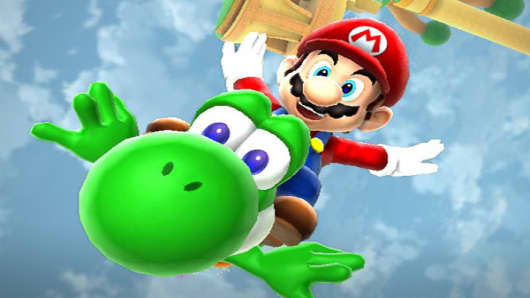Judging by the lines at Nintendo's E3 booth, Nintendo's Wii U is a hit, but the system could have been a lot different if Nintendo had listened to its inner demons.
Global President Satoru Iwata says the idea of a two-screen video game systemwas something the company went back and forth on—and didn't finalize until nearly a year and a half into the development process.
Work on the Wii U began in 2008—one year after the Wii hit retail shelves and began to take over the videogame industry. But there was much internal debate before the schematics were finalized.
"Frankly speaking, it was something in the past that we thought we might or might not go ahead with—this additional screen idea," he says. "In 2008…we started talking about adding an additional screen, but there was some discussion that adding the additional screen of this size or making it in this shape might cost a lot for production, which might not result optimal pricing. Ultimately, after many changes, we decided this is the direction we should take."
Nintendo has scuttled hardware before, but this is the first time it has discussed the production of the Wii U.
Iwata declined to discuss other options that were considered as the second screen was debated internally, noting that those ideas might be used in a later console, but he said that the company makes no decisions until there is a unanimous decision among its executives about where to go next.
The leader of the Kyoto-based game company was similarly candid about his assessment of the company's pre-E3 press conference, which highlighted the launch games for the Wii U, but has been largely panned by videogame media sites.
"My impression is that we should have done a better job because, in effect, we could not fully convey what Wii U is all about," he said. "So I am not 100 percent satisfied as far as this year's presentation. Having said that, in comparison to last year, we were able to reach out to the audience outside of the” Los Angeles Convention Center. Investors drove the stock down a year ago after seeing the Wii U for the first time. “At that time, we were almost like 'What happened?’"
Nintendo will have first-mover advantage in the upcoming generation of consoles—a position Microsoft occupied in the early days of the current generation. For the Redmond-based company, that proved a tremendous advantage, helping the Xbox 360 become the best-selling videogame console in the world.
Iwata says Nintendo doesn't pay attention to such details. First to market, he says, might be a nice bragging right, but in terms of the bottom line, it's relatively meaningless.
"Being first in the next generation race is not important at all," he says. "One of the reasons we believe this is the time for Nintendo to launch the Wii U is it's going to be important for the world."
That's a big, some might say haughty claim, but Iwata has a rationale behind it.
When the Wii launched, HD TVs were hardly commonplace, something that has changed today. In the interim, though, the advent of the second screen has come.
Apple's iPads, and other tablets, are expensive, though—and the Wii U offers an alternative. In addition, Iwata doesn't believe people who have bought a high definition television in the past few years are likely to buy a replacement model for five years or so.
There's a lot of pressure on the Wii U. Nintendo recently reported the first corporate loss in the company's history as a publicly traded firm. Iwata says he does not expect that to be repeated next year.
"Our intention is to return to profitability after just one year of losing money," he says. "I just cannot say that it's a good thing for Nintendo at all to record an annual loss for two or more years in a row. … The [loss of the] past year is due to the 3DS hardware sales. We were selling hardware below the cost, so this year we are already recovering and improving the profitability of the 3DS."
As for the Wii U, Nintendo hasn't announced pricing or a launch date. However, says Iwata, the company learned a lot with the launch of the 3DS handheld system, on which it was forced to slash prices just months after the system launched in the U.S. due to poor sales.
"The pricing of Wii U is going to be one of the most important elements when it is going to be launched," he says. "The environment is different. Wii U is going to be launching in a different environment than when the Wii was launched. Also, the involvement surrounding [mobile and social] businesses is different than several years ago."
As for the struggling Wii, don't expect it to go away forever when the Wii U hits shelves later this year. Iwata says that although Nintendo's focus will have shifted, he recognizes there will still be a market for the device.
While doubters have long since declared it dead, he still sees a lot of money left in the system—in both international markets and domestic.
—By CNBC's Chris Morris
Follow Chris Morris on Twitter: @MorrisatLarge


